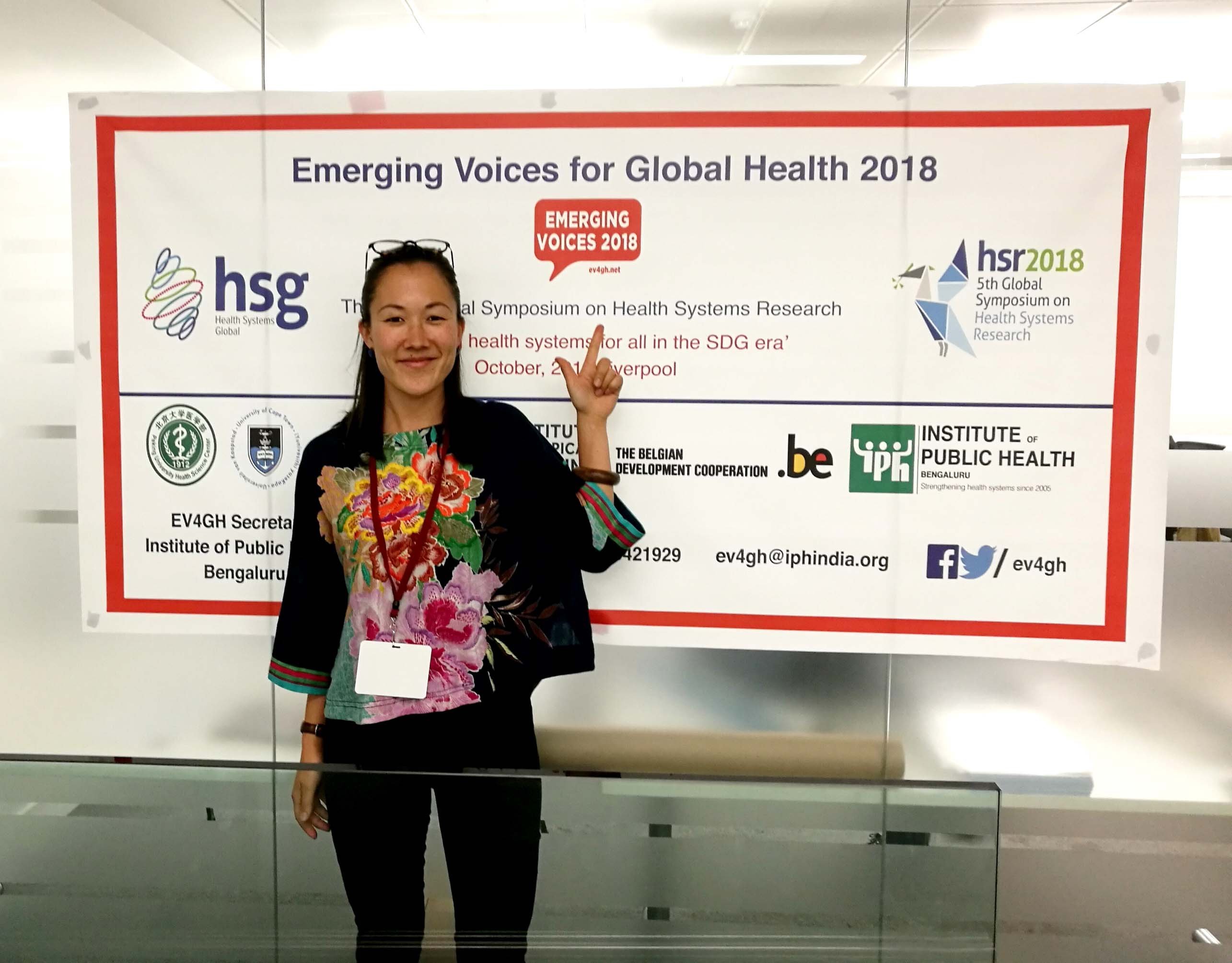Three questions to PhD student Olivia Biermann named Emerging Voice for Global Health 2018

Olivia Biermann, PhD student at the Department of Public Health Sciences, was one of the selected participants of the Emerging Voices for Global Health programme. The programme is aimed at young health systems and policy researchers, decision-makers and other health systems professionals with 'an interest in becoming influential global health voices and change-makers.'
What did you learn from the programme?
"I can talk about knowledge translation and I can discuss community-based screening for tuberculosis because I have spent more than just a few days thinking about, studying and working in these areas. But what I learned is to engage in discussions on 'big topics' – from the Sustainable Development Goals to the private sector in health to community health systems. I learned to not only see those topics as abstract, general context for my work, but to apply systems thinking, and thereby find direct links and entry points for dialogue and action.
"On the one hand, the programme offered us the possibility to learn from experts and, more importantly, from other participants. On the other hand, the programme let us experience and practice debates, panels and 'fishbowl' discussions on those topics, while being guided by excellent facilitators. All of this made for the best preparation for actively and mindfully participating in the Global Symposium on Health Systems Research.
"I have never in my life pushed my boundaries further and faster during such a short period of time – an incredible learning experience."
What was the best part of participating in the programme?
"I made friends from all over the world. We were just over 30 participants with almost everyone being from a different country. The programme included people from (or in some cases working in) low- and middle-income countries.
"This group has so much, highly contagious positive energy and strong determination to have an impact in global health. However, we also learned that we will only have a positive impact and fight inequalities, if we consider gender and collaborate towards decolonizing global health. We are keeping in touch and already started our first small projects together, such as blogs on gender and knowledge translation capacity building. But this is just the beginning.
"Belonging to the Emerging Voice 2018 cohort has been an extremely humbling and inspiring experience – both personally and professionally. I would like to encourage other students from Karolinska Institutet to apply for the programme."
Why is it important for young researchers to raise their voices?
"I never wanted to do research for the sake of doing research. I want to do research that informs policy and practice, and hopefully contributes to a positive change in people’s health. Of course, this does not happen by itself. I think that I, as a researcher, have to learn how to get out of my 'research bubble' and actively build bridges to and between researchers, policy-makers and other stakeholders. Engaging with others is an important prerequisite for 'translating knowledge' and thus for evidence-informed health policy-making to become reality.
"For us, young researchers, it is particularly important to make our voices heard. Firstly, to gain visibility and trust in this world of health systems and policy, and to show what we can contribute. And, to help make this world a better place by being curious, critical and constructive. The Emerging Voices showed me how essential it is to think deeper, speak up louder and dare challenging 'emerged voices'."
